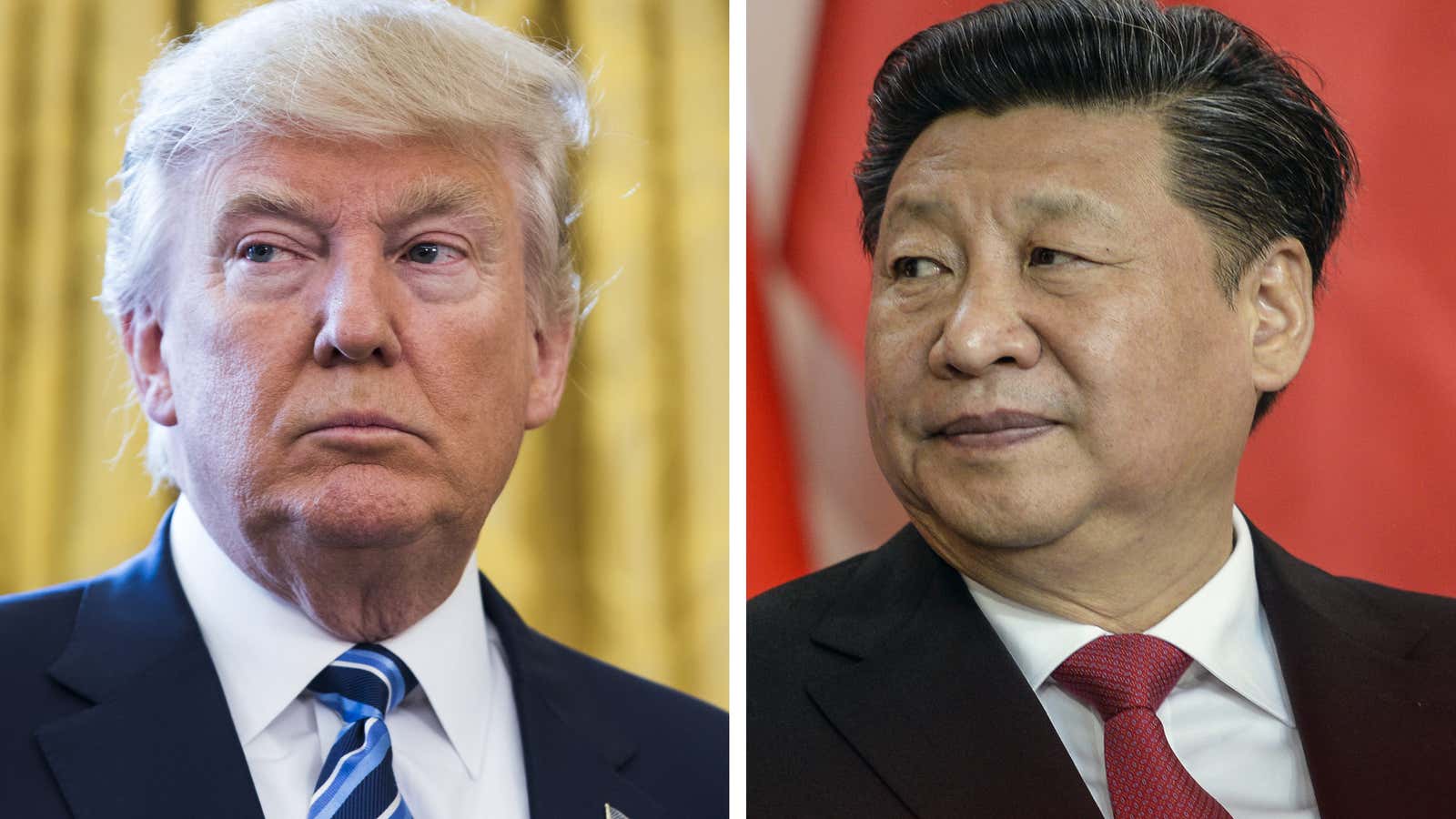Donald Trump and China’s president Xi Jinping finally talked.
On the call, which took place on Thursday (Feb. 8) night, Trump reaffirmed America’s commitment to the “One China” policy—a stark climbdown from his earlier hard-line stance against Beijing.
According to a White House statement, Trump, “at the request of President Xi,” agreed to honor the policy, which acknowledges that there is only one China and allows the US to only have formal diplomatic ties with Beijing and not Taipei. Trump and Xi also “extended invitations to meet in their respective countries” in their ”lengthy” and “extremely cordial” conversation.
Trump had previously refused to outright reaffirm the “One China” policy, which has been in place since the Nixon presidency when the US switched diplomatic recognition to Beijing from Taipei in 1979. In early December, he upended decades of US diplomatic protocol by accepting a phone call from Taiwan president Tsai Ing-wen. He later defended the call during an interview with Fox News, suggesting that the US should not be bound by its bedrock China policy—and that it could instead use it as a bargaining chip to make deals with China in other issues such as trade.
Beijing lodged a formal complaint to the White House regarding the Trump-Tsai call, and strongly warned on several occasions that the “One China” principle is not negotiable and is the “political foundation” of US-China relations.
While Taiwan has functioned as a democratic, self-governing country since the end of the Chinese Civil War in 1949, Beijing considers it a part of China.
The Trump-Xi call came a day after Trump sent a letter to Xi wishing him and the Chinese public a happy Lunar New Year. Up until now, there had been a conspicuously long absence of official communication between the two since Trump’s inauguration. Trump had spoken to 18 other heads of state before Xi.
The call also happened shortly before the prime minister of Japan—a crucial US ally that wants to keep Chinese power in check—is set to meet Trump at the White House on Feb. 10.
